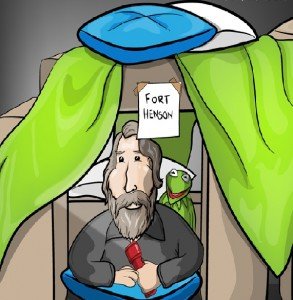Every author gets asked at some point or another: “How do you come up with all these crazy ideas?” In this guest-blog, the wonderful Jeff DeMarco sets out to answer this question once and for all!
He leaned down into the child’s crib and whispered, “Goodnight, sweet pea. I love you,” then gently caressed her cheek. Her two middle fingers stuffed in her mouth, she mumbled, “Night night, da-da. I wuvs you.” She giggled, then smiled, mimicking her father’s face. It meant more to him than she could ever know, unless she had children of her own someday. It was their nightly ritual, until it ended.
I wrote that down just the other day, and aside from the last little statement, “until it ended,” it’s completely true. Yet, it makes you wonder, “why did it end?” Perhaps the child dies, perhaps the father dies, perhaps they’re separated or the parents become divorced or aliens abduct the father or a nuclear warhead goes off and it’s a race for survival and… ad infinitum. Or perhaps the girl just grows up and doesn’t need her father to tuck her in at night.
Quick anecdote and then we’ll get in to coming up with great ideas: Back when I was single, a ‘swinging richard’ if you will, I dated, naturally. The question always comes up in one way or another, directly or indirectly, ‘tell me about yourself.’ The worst possible answer (and in case you’re still in the dating pool) is “I’m boring,” and here’s why: YOU STARTED OUT AS A SINGLE CELL, GREW INSIDE ANOTHER LIVING HUMAN, FACED ADVERSITY, ACCOMPLISHED GOALS, GOT IN TROUBLE, FELL IN LOVE, HAD YOUR HEART BROKEN, FAILED, FAILED AGAIN, SUCCEEDED, NOT TO MENTION THAT YOU’RE CURRENTLY RIDING A MOLTEN-CORE-FILLED-ROCK MILLIONS OF MILES PER HOUR THROUGH SPACE. So, don’t tell me you’re boring.

1) Go buy a bunch of pocket notebooks. Writers, authors, teachers and bloggers have beat this dead horse beyond recognition, but seriously, I can’t tell you how many times I’ve been half asleep laying in bed and I have this transcendent thought, but OH NO! WHERE’S MY NOTEBOOK? Then I gradually convince myself that it’s such a great thought that I’ll surely remember it in the morning, settle back in to my slumber and BAM great idea is gone. Furthermore, I’m not a big fan of carrying things in my pockets. If you are, that’s cool. Just don’t get caught in the shower without a waterproof notebook.
2) Ask ‘what if?’ ALL THE TIME. I was mindlessly standing in front of my refrigerator the other day (I’m a stress eater, leave me alone), and I asked myself, “What if there was no food?” How would I find it, hunt it, gather it? I went a step further and asked, “What if there was no food, no canned goods, no animals? What if all the plant life died? What would I do then?” What I was really asking myself was “What would a slow death of starvation look like?” That leads me to my next point:
3) Don’t be afraid to be dark, or weird, or sexual, or someone completely different than you. Readers pay to live inside your fantasy, and it’s perfectly acceptable. There are a few notable exceptions here that are generally not accepted by the writing community: writing about pedophilia, rape, child and animal abuse and racism in a positive light. If that’s what you’re into writing, perhaps rethink your life choices. That said, murder (of someone who isn’t necessarily innocent) is usually acceptable… go figure. Otherwise, if you want to write transgender or adult baby-daddy erotica, go for it. There’s a market out there. If you want your main character to be a soul stealing demon, go for it. The limit is your imagination.
4) Stuff a love story into a post-apocalyptic future. What sort of challenges would one face. How do you go about caring for someone else when you can barely care for yourself? Or stuff a friendship into a paranormal romance. When the ghost leads your best friend and fiancé and has them dangling from a ledge, you must choose. What’s more important? Friendship or love?
5) People watch. Ok, so this one’s a little creepy, but oh well. See that cute redhead walking down the street? Wonder at what she might be thinking. What if she turned down a dark alley and was murdered? How would you solve the case? What clues do you have from what she’s wearing? Is she walking fast or slow? Is she smiling? Maybe she’s going to see her boyfriend. Maybe she’s going to pay off her loan shark or buy drugs or going to class. These are a few examples, but the bottom line is that life is not boring. It’s never boring. What’s boring is your actions and lack of imagination… so, stop it. Realize that there are a world of possibilities, and they’re all closer than you think. Now go write!
Author Jeff DeMarco is an all around swell guy and a snappy dresser. You can find him at his website by clicking here.







